Articles and Publications
In this section you can find all the publications of EUROPEUM staff and collaborators. Press releases can be found in the About us section.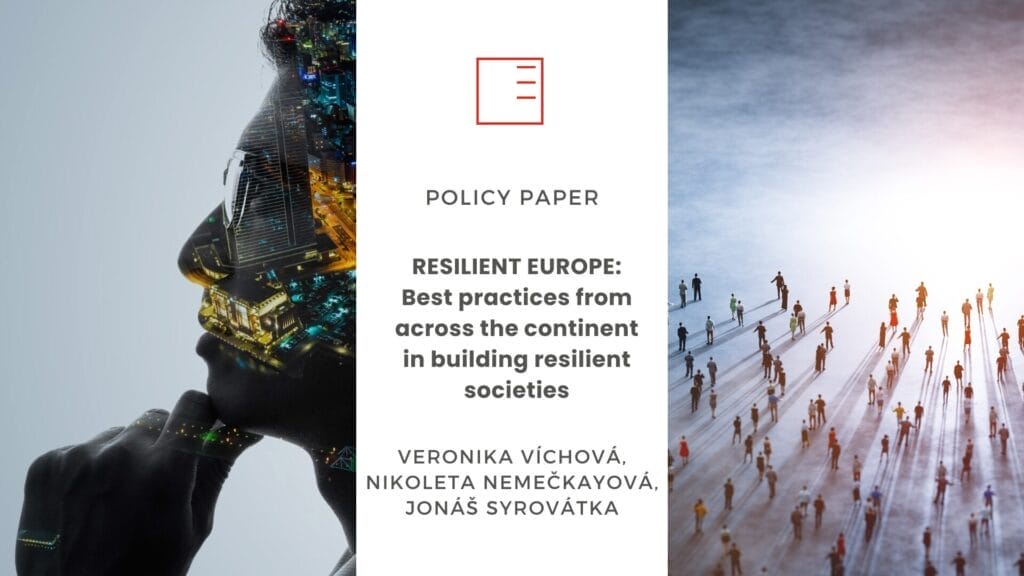
Policy Paper | Resilient Europe: Best Practices from Across the Continent in Building Resilient Societies
The "Resilient Europe" conference, held in Prague in October 2024, brought together leading experts from across Europe to share their experiences and best practices in dealing with threats such as Russian disinformation, hybrid warfare tactics that seek to destabilize democratic institutions and undermine public trust. This policy paper summarises the main findings of the conference into three main categories: hybrid threats, information manipulation in digital space and strategic communications. These categories encompass the wide range of measures taken by European states and institutions to ensure democratic resilience, and the paper further identifies the most pressing challenges and opportunities for future efforts. Summarised by Jonáš Syrovátka of the EUROPEUM Institute, Veronika Víchová of the Centre for an Informed Society and Nikoleta Nemečkayová of the Association for International Affairs.
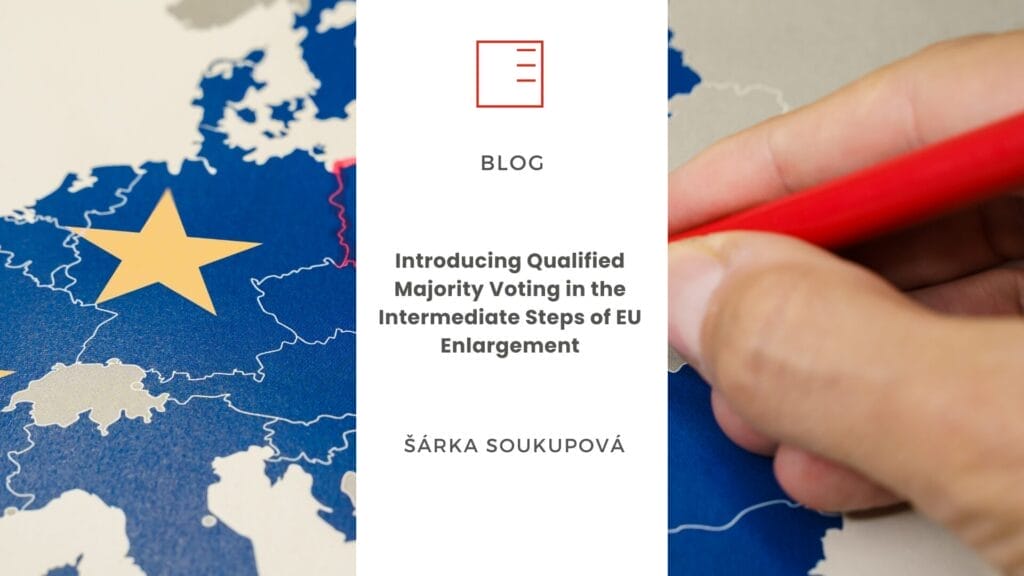
Blog | Introducing Qualified Majority Voting in the Intermediate Steps of EU Enlargement
Since Russia invaded Ukraine in February 2022, European Union (EU) enlargement has gained new momentum, bringing the topic to the forefront of political discussions. This renewed focus highlights the need to strengthen the EU’s geopolitical position and security through enlargement. However, significant challenges remain, particularly regarding the effectiveness and credibility of the current accession process. EUROPEUM Institute intern Šárka Soukupová writes in her blog.
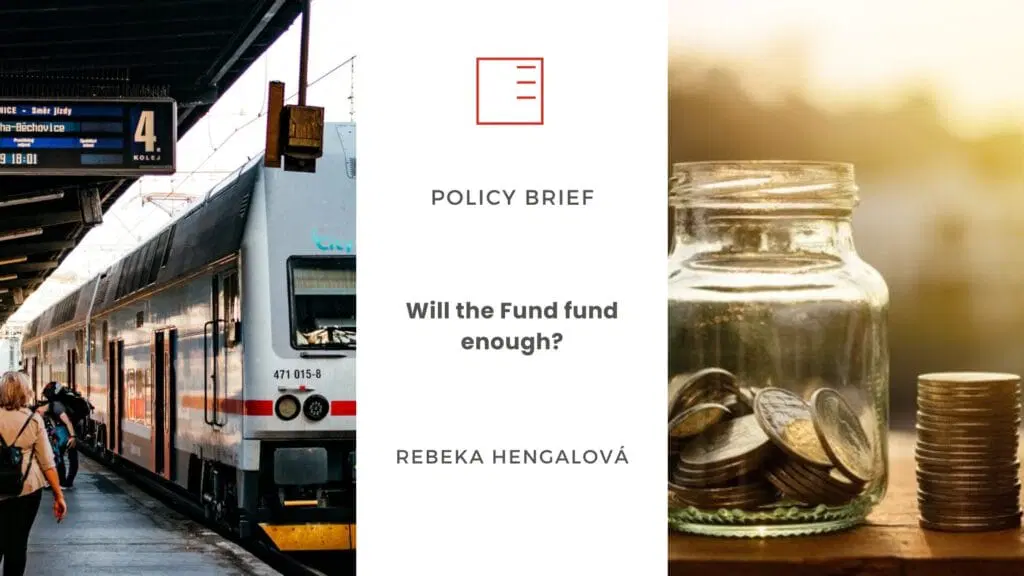
Policy Brief | Will the Fund fund enough?
There is a plethora of ways in which the ETS2 revenues and Social Climate Fund financing can support decarbonisation among lower-income strata, accounting for differing needs of communities, regions and countries. When addressed in a timely manner, these initiatives can both serve the green and just transition. How exactly can the Fund be allocated and what are its capacities are the guiding questions of this policy brief, written by Rebeka Hengalová as part of the Think Visegrad research fellowship.
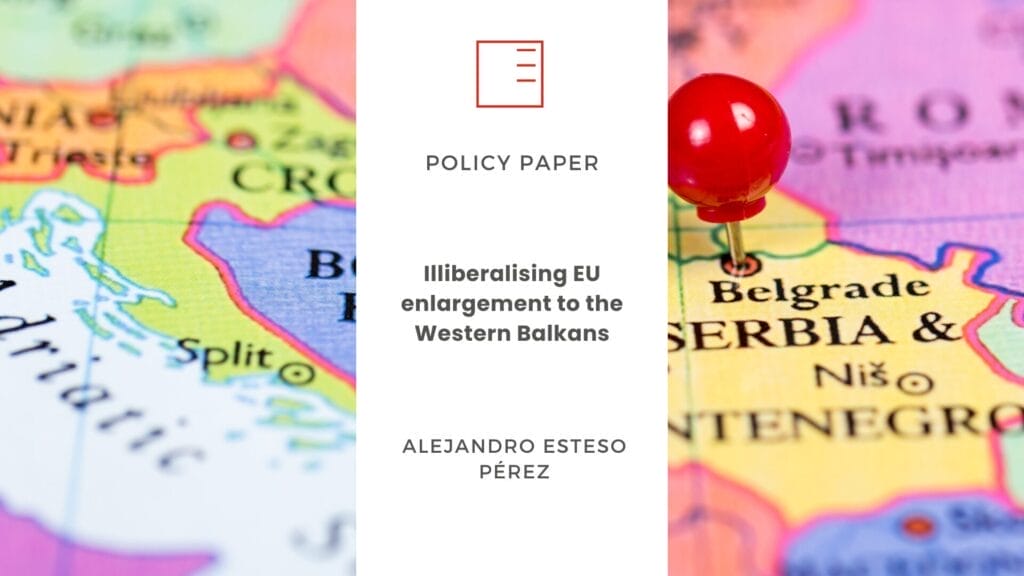
Policy Paper | Illiberalising EU enlargement to the Western Balkans
The phenomenon of illiberalism, cornerstone to the increasingly popular concept of illiberal democracy, has steadily gained all the more traction in the global policy discussion. In the European Union (EU), the consolidation of majoritarian, nativist leaderships is leading to many Member States’ backtracking on progressive agendas and openly pursuing policies that undermine the rights of minorities and the liberal-democratic system of checks and balances. Writes Alejandro Esteso Pérez, visiting fellow at EUROPEUM Institute.
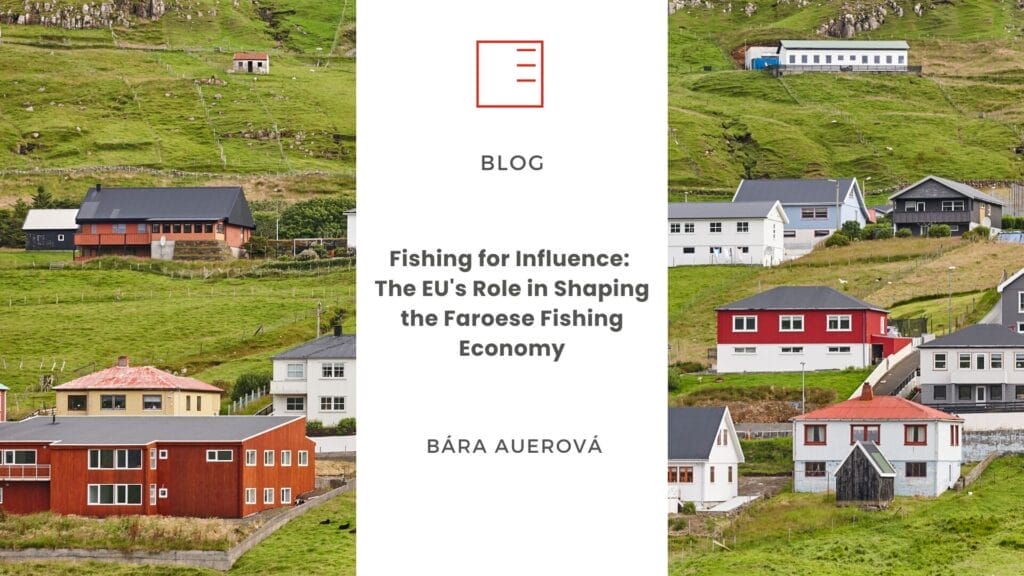
Blog | Fishing for Influence: The EU's Role in Shaping the Faroese Fishing Economy
The Faroe Islands, located in the North Atlantic, have long relied on fishing as the corner-stone of their economy, shaping their economic and social identity. However, the decline in em-ployment in this sector in recent decades, coupled with the global problems of overfishing, un-derlines the fragility of this dependence. Writes intern Bára Auerová in her blog.
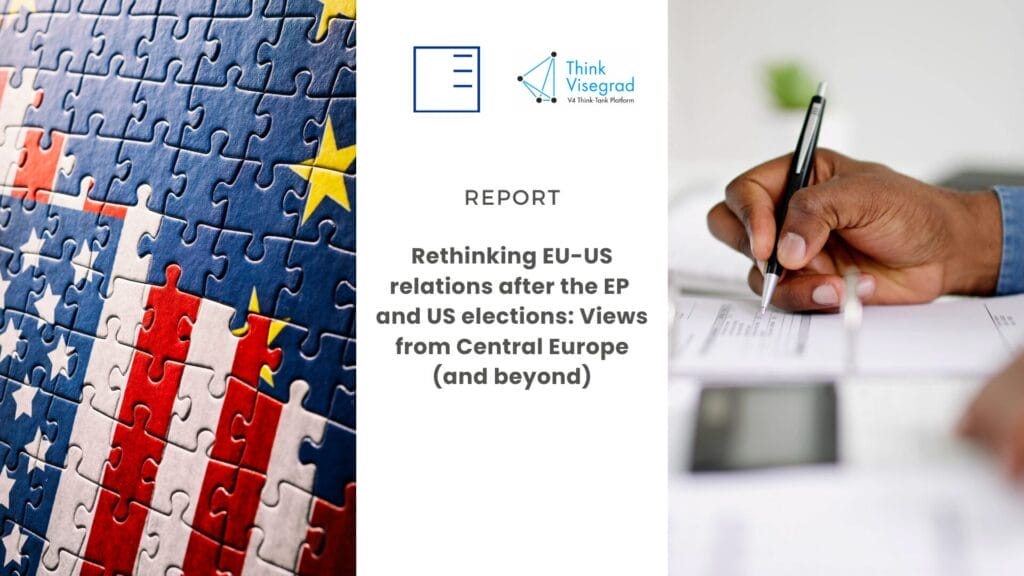
Report | Rethinking EU-US relations after the EP and US elections: Views from Central Europe (and beyond)
On December 10th, Think Visegrad in Brussels organised an expert discussion on Reassessing EU-US relations after the EP and US elections: Views from Central Europe (and beyond). The debate examined the potential implications of Donald Trump’s re-election for the EU
and the transatlantic relationship. Attended by experts, policymakers, and academics, the session explored critical challenges and opportunities across political, security, and economic dimensions. The debate aimed to foster an in-depth understanding of how the
policies of the Trump administration might reshape the EU’s strategic choices and influence EU-US relations.
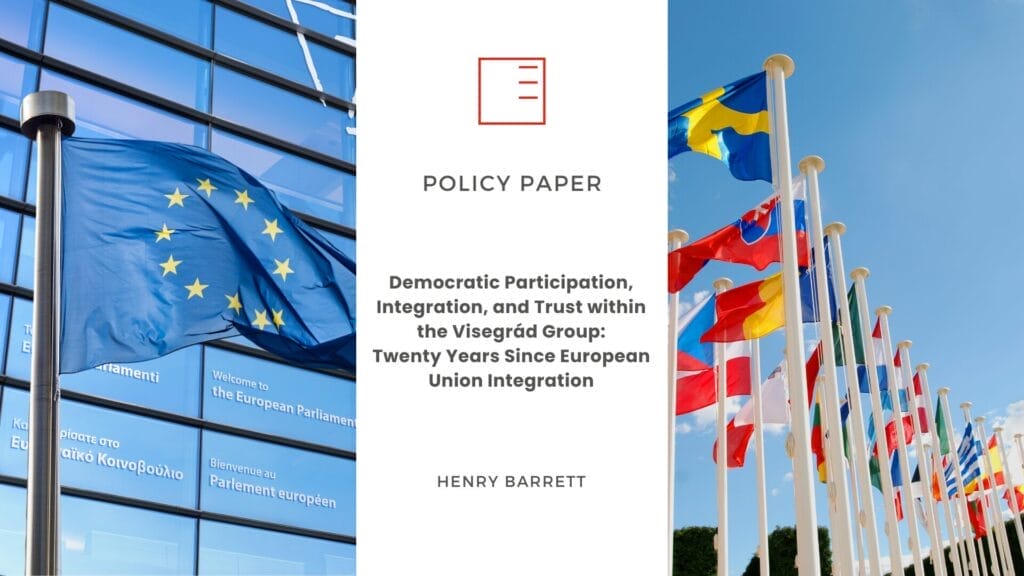
Policy Paper | Democratic Participation, Integration, and Trust within the Visegrád Group: Twenty Years Since European Union Integration
This paper contextualizes and analyzes data pertaining to democratic participation, institutional trust, and integration of the Visegrád Group—Czechia, Hungary, Poland, and Slovakia—into the European Union twenty years since accession. This paper explores the history and functionality of the Visegrád Group as a political collective both before and during EU membership. A representative survey across the four countries provides substantive insights into the current state of EU cohesion during a critical period for the community. Writes Henry Barrett in his Policy Paper.
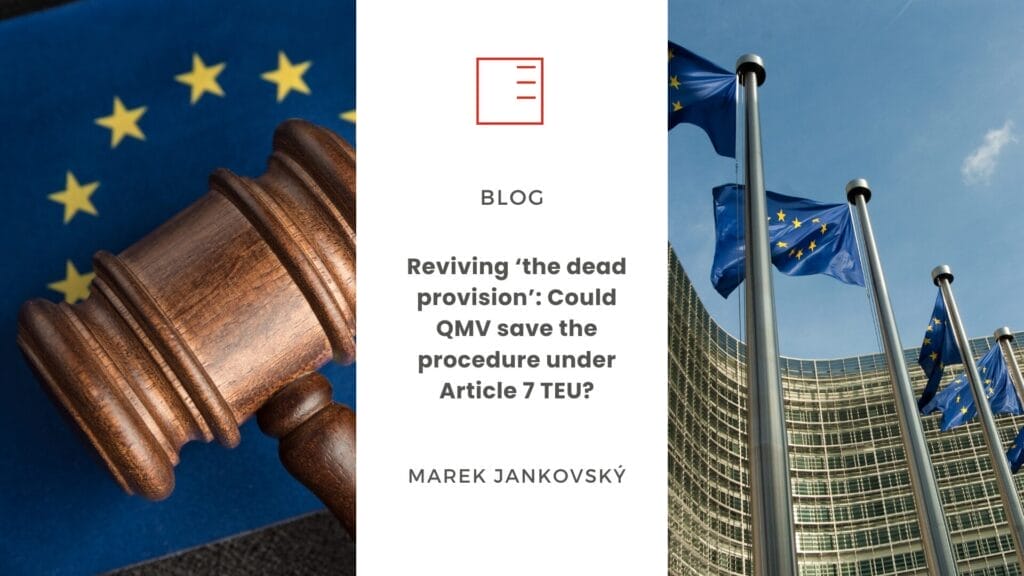
Blog | Reviving ‘the dead provision’: Could QMV save the procedure under Article 7 TEU?
With the ongoing debate on EU enlargement, the question of Treaty revision to ensure the EU’s actionability in the future is on the table. While some member states believe that the current state of the Treaties is fitting for a Union of 35+ members, others call for Treaty revision before enlargement. In 2022, the European Parliament took the discussion a step further by passing a resolution suggesting far-reaching revisions to the Treaties. Writes Marek Jankovský, an intern at EUROPEUM's Brussels office.
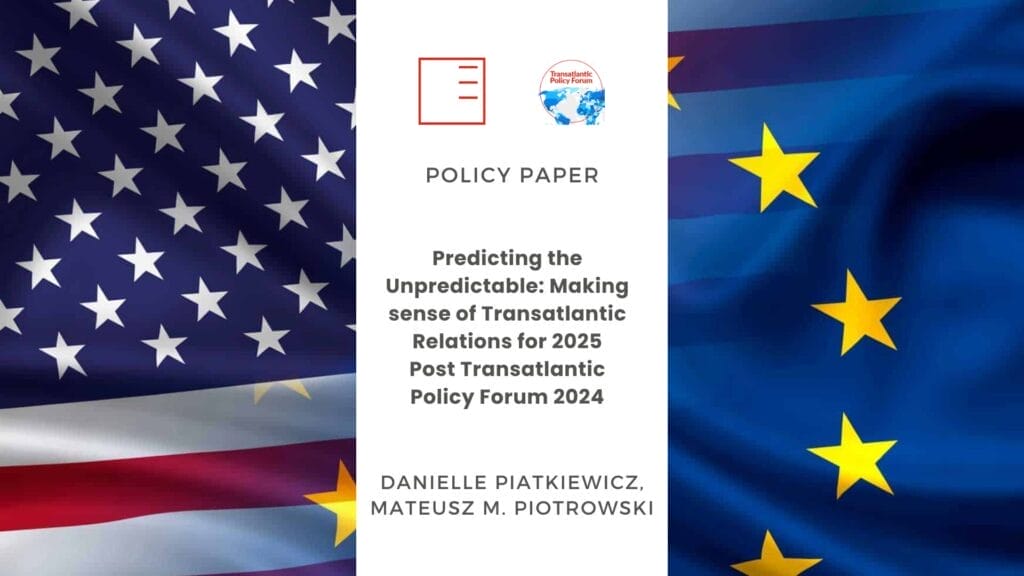
Policy Paper | Predicting the Unpredictable: Making sense of Transatlantic Relations for 2025 Post Transatlantic Policy Forum 2024
The result from the 2024 Presidential elections has, once again, shook the foundations of the Transatlantic relationship – but to what degree, remains the question. This policy paper compiles the key insights and deliberations from the Forum, which adhered to the Chatham House Rule to protect participant confidentiality. Based on the engaging discussions, this paper offers a comprehensive set of takeaways, including actionable recommendations and a strategic “To-Do list” for the transatlantic alliance in the coming years. Writes researcher at EUROPEUM Institute Danielle Piatkiewicz and senior analyst at the Polish Institute of International Affairs Mateusz M. Piotrowski.
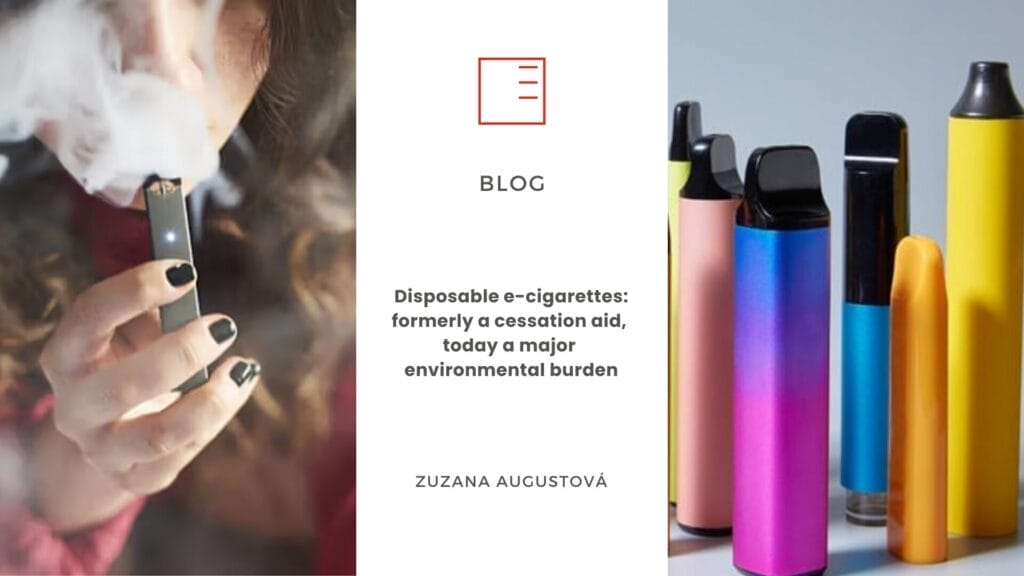
Blog | Disposable e-cigarettes - formerly a cessation aid, today a major environmental burden
The problem of disposable electronic cigarettes, also known as vapes, is the subject of a blog by Zuzana Augustová. In it, the author describes the negative health effects, noting the easily addictive nature, especially for young people. She also looks at the environmental impact of these products, as they are made up of materials that cannot be easily recycled, and throwing them in the garbage can cause fires and leaks of harmful substances. It then uses the example of the UK to show how the government is attempting to tackle the problem through legislation, including a planned ban on their sale.

Report | Geopolitics first: Perspective of CEE on the EU's global challenges in the next political cycle
On December 11th, the Brussels Office organised Geopolitics First: Perspectives of CEE on the EU's Global Challenges in the Next Political Cycle. The aim of this expert discussion was to broaden the perspective of the Central European region on key geopolitical challenges, such as the foreign policy influence of Russia and China.

Policy Paper | Czechia in NATO at 25
As the Czech Republic celebrated 25 years of NATO membership, this paper examined the country’s journey within the Alliance—its achievements, challenges, and growing responsibilities in collective security. From its early integration to its evolving strategic role, the Czech Republic contributed to NATO’s missions, strengthened transatlantic ties, and adapted to new security threats. Part of the project “Celebrating 25 Years of Czech Republic’s NATO Accession,” this analysis reflected on key milestones, policy developments, and the broader significance of NATO membership for the nation’s defense, diplomacy, and global engagement.